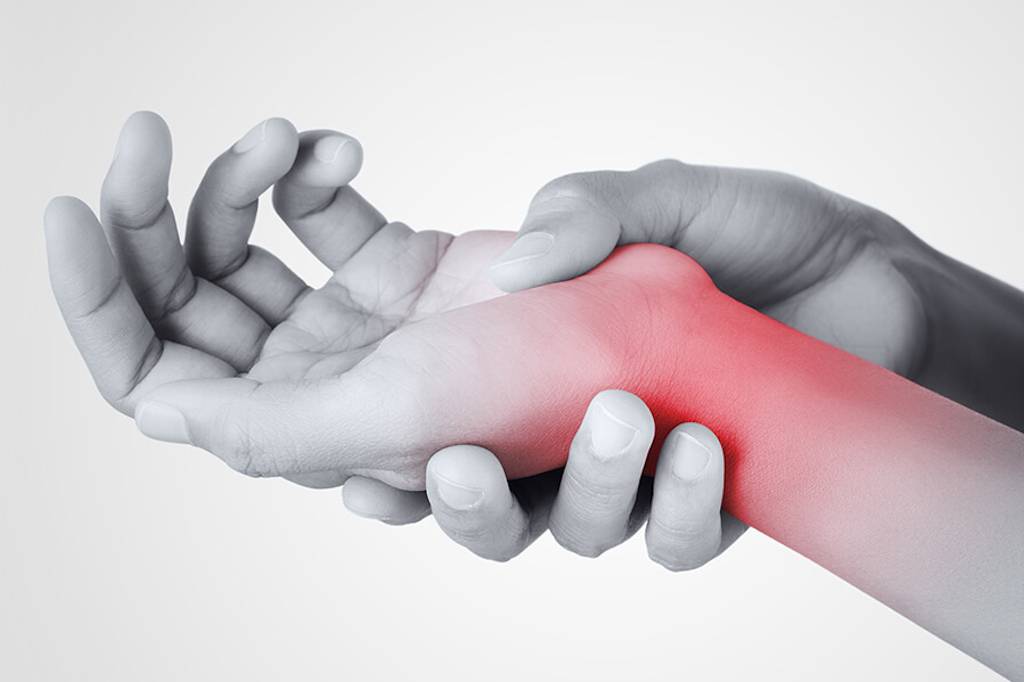
Carpal Tunnel treatment in Dee Why
Carpal Tunnel treatment at Contemporary Healthcare in Dee Why Northern Beaches Sydney
Carpal tunnel treatment at Contemporary Healthcare in Dee Why Northern Beaches Sydney has been available for over 30 years with Dr Orazio Trevisan. In that time he has treated thousands of cases of Carpal Tunnel with an almost 100% success rate at the Dee Why practice.
What is Carpal Tunnel Syndrome (CTS)?
Carpal tunnel syndrome (CTS) occurs when the median nerve, which runs down the forearm into the palm of the hand, becomes compressed at the wrist. The carpal tunnel is a narrow, rigid passageway made up of a ligament at its roof (the Flexor Retinaculum) and at its base by the bones of the hand. The carpal tunnel houses the median nerve as well as the tendons that bend the fingers.
The median nerve provides feeling to the palm side of the thumb and to the index, middle, and part of the ring fingers (although not the little finger). It also controls some of the small muscles at the base of the thumb.
Thickening from;
- Irritated or damaged tendons or
- Any other swelling due to repetitive injury or trauma
leads to narrowing of the tunnel and compression in the median nerve. The result may be numbness, weakness, or sometimes pain in the hand and wrist. Some people may feel pain in the forearm and arm. CTS is the most common of the entrapment neuropathies, in which one of the body’s peripheral nerves is pressed on or squeezed.
Common Symptoms of Carpal Tunnel Syndrome include ……
- Numbness or tingling in the fingers, especially the thumb and the index and middle fingers
- Some affected people report that their hand or fingers feel swollen
- Symptoms initially often appear at night either in one or both hands. The dominant hand is usually affected first
- Some affected people feel the need in the morning to shake out the hand or the wrist
- As the condition worsens affected people may start to develop symptoms throughout the day also
- Weakness in the hand and wrist is also very common. This leads to difficulty grasping small objects or performing manual tasks. Many affected people find themselves dropping thing
Common Causes of Carpal Tunnel Syndrome include …….
- Trauma or injury to the wrist that causes swelling, such as a sprain or fracture
- Repetitive injury from everyday use, especially where there is repeated flexion (bending) of the wrist
- Mechanical problems in the wrist, elbow and shoulder
- Spinal problems can also contribute greatly
- Repetitive use of vibrating hand tools
- Repetitive use of computers, it is thought that the use of the mouse creates more problems than the use of the keyboard
- Fluid retention during pregnancy or menopause, or the development of a cyst or tumor in the canal
- Degenerative or inflammatory conditions affecting the wrist such as arthritis
- Often, no single cause can be identified
Diagnosing Carpal Tunnel Syndrome
- A thorough history and physical exam is generally enough to diagnose CTS. The physical exam will involve examining the hand, wrist, elbow, shoulder and spine.
- Other testing such as x-rays may be needed if there has been any trauma involved
- Specific tests may re-produce the symptoms of CTS. The two most commonly used tests are the Tinel’s tap and the Phalen’s wrist flexion test
Non surgical management of Carpal Tunnel Syndrome at Contemporary Healthcare Dee Why
Initially, treatment is aimed at managing the carpal tunnel symptoms to give the quickest relief possible. This will generally include:
- Shockwave therapy – This will help with repairing tissue damage and swelling
- IASTM (Instrument Assisted Soft Tissue Mobilisation) – This technique uses very specific instrumentation to break up scar tissue and aids in decreasing swelling
- Active release technique (ART) – this technique helps to break up adhesions and scar tissue between the nerves in the forearm and the surrounding tissue
- Adjustments/mobilisations to the wrist to improve mechanical function
After the initial symptoms are under control, treatment is aimed at identifying the underlying causes of the CTS including:
- Function of the elbow, shoulder and spine.
- Posture
- Ergonomics of the work environment
- Lifestyle factors
Success rates for treatment of Carpal Tunnel Syndrome at Contemporary Healthcare Dee Why with Dr Orazio Trevisan are almost 100%.
Contemporary Healthcare is a multidisciplinary practice that incorporates Chiropractic, Shockwave Therapy, Hypervibe Therapy, Applied Kinesiology, NET, Active Release technique (ART) and Instrument Assisted Soft Tissue Mobilisation (IASTM). It is located in Dee Why on the Northern Beaches of Sydney.
If you have any questions regarding Carpal Tunnel or if you want to make an appointment, please call the Dee Why practice on 9971 4408.
 Contemporary Healthcare
Contemporary Healthcare